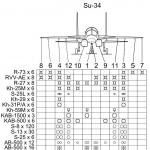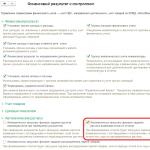Responsibilities of a garden non-profit partnership or what is SNT? SNT: what is it, decoding and features. Chairman of the SNT: activities and responsibilities Where the charter of a gardening partnership is registered
Discounts!! from 5 to 10% on all services!! Call...
The cost of registering a Garden Non-Profit Partnership (SNT) on a turnkey basis25,000 rubles
The cost of registering a Dacha Non-Profit Partnership (DNT) on a turnkey basis25,000 rubles
(The price of the service includes: State fees for registration and Charter, preparation of documents, submission of documents to the registering authority,representing the client’s interests in the Ministry of Justice, obtaining registered documents, making a seal,receiving notifications from extra-budgetary funds of the Pension Fund, Compulsory Medical Insurance Fund, Social Insurance Fund)
Promotion! When registering an NP, a set of business cards for the manager is a GIFT!
Funds as a gift! Saving 3,000 rubles!
Departure of the courier - Free!
Legal consultations - Free!
In terms of timing, registration of SNT and DNT registration takes 1.5-2 months.
SNT registrationAnd DNT registration- the procedure is more complex than registering a commercial enterprise (for example, LLC). In the course of their lives, citizens, in addition to the apartment itself and other residential premises, can acquire other property, in particular dachas, garden and vegetable houses.
In order to more quickly resolve issues of managing dacha, vegetable and garden farming, it is necessary to carry out the procedure for registering a garden partnership or the procedure for registering a dacha partnership (depending on the property owned).
However, without proper legal support, carrying out this process independently, in particular preparing all the necessary documents and submitting them to government authorities, is very difficult.
Your Law Firm is ready to provide assistance in registering SNT or DNT at all stages of this procedure, including registration of DNT or SNT on a turnkey basis.
The fundamental legislative act that determines the legal status of SNT/DNT, the rights and obligations of its members, the procedure for making contributions, etc. is Federal Law No. 66-FZ dated April 15, 1998. The very procedure for registering DNT/SNT is established by the law on state registration of legal entities. persons and individual entrepreneurs.
To create SNT and DNT, a standard set of documents is required (as well as to create other forms of non-profit organization):
- application for registration of a garden partnership in form RN001;
- decision to open SNT or DNT;
- constituent documents of SNT/DNT;
- receipt of payment of state duty.
The decision to open a DNT/SNT
This decision is the basis for registering a dacha partnership or garden partnership and can be made both in the process of reorganizing another non-profit organization into SNT/DNT, and in the process of creating a new SNT/DNT.
It should be noted that the creation of a DNT or SNT is possible only if the number of its founders is at least three (otherwise, the opening and registration of a SNT/DNT is not possible).
The decision must necessarily indicate the issues put to vote, as well as the results of such voting.
Constituent documents of DNT/SNT
The legislation establishes that the constituent document of a dacha and garden partnership is its charter.
At the same time, special rules are defined regarding the information that the charter must contain. So, the charter of SNT and DNT must include the following information:
- organizational form;
- name and address;
- subject and main goals of the activity;
- rules for admission to and withdrawal from membership of SNT or DNT;
- rights and obligations of SNT/DNT;
- the legal status of members, including an indication of their responsibilities;
- rules for making contributions by members of SNT/DNT, liability for violations of these rules;
- rules for the participation of members in the work of SNT or DNT;
- information about the bodies of the partnership, their competence;
- composition, as well as the competence of the regulatory bodies of DNT/SNT;
- rules for conducting absentee voting;
- information about the formation of property;
- information about employee remuneration;
- information about exclusion from SNT or DNT;
- information about the reorganization or liquidation of DNT/SNT, the opening of its representative offices, etc.
- other information in accordance with the law.
Thus, when registering a dacha/garden partnership, citizens need to be very careful in the formation of its charter in order to avoid further adverse consequences.
Your Law Firm is ready to take absolutely all necessary steps to register a garden partnership/dacha partnership. Our specialists will prepare a complete list of necessary documents, draw up such documents in accordance with legal norms and submit them for registration with the state. authorities (Ministry of Justice of the Russian Federation, tax inspectorate).
Hello! We have a group of citizens who are owners of land plots. We want to create our own gardening non-profit partnership. Where should we start and where should we apply for registration of a non-profit partnership? What should be included in the charter?O. Mitrokhin, St. Petersburg
According to Art. 16 of Federal Law No. 66 “On horticultural, vegetable gardening and dacha non-profit associations of citizens,” a horticultural, vegetable gardening or dacha non-profit association is created based on a decision of citizens as a result of the establishment or as a result of the reorganization of a horticultural, vegetable gardening or dacha non-profit association. The number of members of a gardening, gardening or dacha non-profit association must be at least three people. The constituent document of a horticultural, gardening or dacha non-profit association is the charter approved by the general meeting of the founders of the non-profit association. The charter of a horticultural, gardening or dacha non-profit association must indicate:
organizational and legal form;
name and location;
subject and goals of activity;
the procedure for admission to and withdrawal from such an association;
the rights and obligations of such an association;
rights, duties and responsibilities of members of such an association;
the procedure for making entrance, membership, target, share and additional contributions and the responsibility of members of such an association for violation of obligations to make these contributions;
the procedure for the participation of a member of such an association in work performed collectively on the basis of a decision of the general meeting of members of such an association or a meeting of authorized representatives or on the basis of a decision of the board of such an association;
the structure and procedure for the formation of management bodies of such an association, their competence, the procedure for organizing activities;
composition and competence of the control bodies of such an association;
procedure and conditions for conducting absentee voting (by poll);
the procedure for forming the property of such an association and the procedure for paying the cost of part of the property or issuing part of the property in kind in the event of a citizen leaving the membership of such an association or the liquidation of such an association;
terms of remuneration for employees who have entered into employment contracts with such an association;
the procedure for changing the charter of such an association;
the grounds and procedure for expulsion from members of such an association and the application of other sanctions for violation of the charter or internal rules of such an association;
the procedure for reorganization and the procedure for liquidation of such an association, the procedure for its entry into associations (unions) of horticultural, gardening or dacha non-profit associations, the procedure for opening its representative office.
The charter of a gardening, gardening or dacha consumer cooperative also specifies the responsibility of the members of such a cooperative for its debts.
The charter of a horticultural, gardening or dacha non-profit partnership also specifies the procedure for the formation of a special fund, which is the property of such a partnership. The provisions of the charter of a horticultural, gardening or dacha non-profit association cannot contradict the legislation of the Russian Federation and the legislation of the constituent entities of the Russian Federation. Decisions of the governing bodies of a horticultural, gardening or dacha non-profit association cannot contradict its charter.
State registration of a horticultural, gardening or dacha non-profit association is carried out in the manner prescribed by the Federal Law on State Registration of Legal Entities.
Registration is carried out at the tax office at the location of gardening.
The founders of a horticultural, gardening or dacha non-profit association are considered accepted members of such an association from the moment of its state registration. Other persons joining such an association are accepted into its membership by the general meeting of members of the horticultural, gardening or dacha non-profit association.
Thus, you need a decision of the founders, which is documented in the minutes of the meeting of founders, where you elect the board and chairman of the board, approve the charter, make a decision on the creation of gardening, the SNT charter itself, completed form P11001, you need to have it certified by a notary, a receipt for payment of the state fee .
N. Uvarov,
legal advisor of the Union of Gardeners
Newspaper "GARDENER" No. 51, 2011.
The procedure for free ownership of SNT land is as follows:
Drawing up a description of the land plot
The owner does this with his own hand, indicating the land plot in the document, and then has the document certified by the chairman of the partnership.
Obtaining an opinion from the management of the partnership
It must confirm information about the applicant, as well as about the specific land plot and its location.
Appeal to the authorized government body
As a rule, this body is a local municipal or state authority vested with the rights to dispose of land.
The following documents must be submitted to this authority: 
- application for registration of land ownership;
- a copy of the gardener's membership card (or any other similar document);
- certified description of the site;
- conclusion of the management of the partnership;
- an extract from the Unified State Register of Legal Entities confirming that the partnership is non-profit;
- constituent documents of SNT;
- a certified copy of a document proving the applicant’s rights to the land.
It is worth considering that, depending on the situation, other additional papers may be required, the full list of which is better to check with the authorized body in advance.
Getting a solution
The legislation provides for a period of 14 days from the date of its submission for consideration of the application. During this period, the locality decides whether to grant the citizen ownership rights to the site. If the decision is positive, he will be issued a corresponding resolution authorizing privatization.
After this, the citizen needs to obtain a cadastral plan (if there is none) and apply for state registration of property rights to Rosreestr.
This will also require certain documents: 
- application requesting registration;
- passport (or any other document proving the identity of the applicant);
- receipt of payment of state duty;
- title documents;
- cadastral passport.
The registration authority checks these documents and makes a decision within 30 calendar days from the date of application.
If the result of the review is positive, the citizen will receive a document confirming his rights to the land - a certificate of ownership.
Possible reasons for refusal
In some cases, an applicant for a land plot may be refused to receive it, but the reasons for this must be compelling. The main ones include the following factors:
Too much land area
The law sets a certain limit on the maximum size  a plot that can be provided to one citizen or one family.
a plot that can be provided to one citizen or one family.
If the plot selected for receipt exceeds this value (separately or taking into account the land he already owns), then his application will be denied.
It is worth considering that the specific value of such a maximum area is established by the legislative acts of an individual subject of the Russian Federation and therefore may differ in different areas. In some localities, such a restriction is not established at all. Most often, 5, 10 or 15 acres are allocated per family.
Violation of the boundaries of a settlement or municipality
The site allocated or formed as a result of annexation should not extend beyond the boundaries of the locality in which the corresponding SNT is registered.
Lack of cadastral registration
This requirement is common to all plots that are leased or sold, regardless of their form of ownership. In this case, the property must be registered in the cadastral register and have a corresponding number. To do this, a land surveying procedure must also be carried out, with the help of which the boundaries of a particular area are precisely established.
The presence of violations in the activities of the SNT itself
For example, this may be the debt of the partnership as a legal entity to the local or federal budget, its violation of fire or sanitary safety rules, etc.
 The availability of all necessary documents and their correct execution is also of great importance.
The availability of all necessary documents and their correct execution is also of great importance.
In particular, it is necessary to indicate exactly what buildings are on the site and what type they belong to. If this requirement is not met, privatization may be refused.
Development opportunities
In addition to achieving the main goal, that is, farming, a garden plot can be used by a citizen for the construction of certain objects on it.
The introduction of new changes to the land legislation of the Russian Federation has significantly simplified the registration procedure for plots located on the territory of SNT.
Owners of such real estate until the end of 2020 can quite simply privatize such plots, without having to pay any funds for privatization. However, to do this they will have to prepare an impressive package of documents confirming that they have the rights to use this property.





